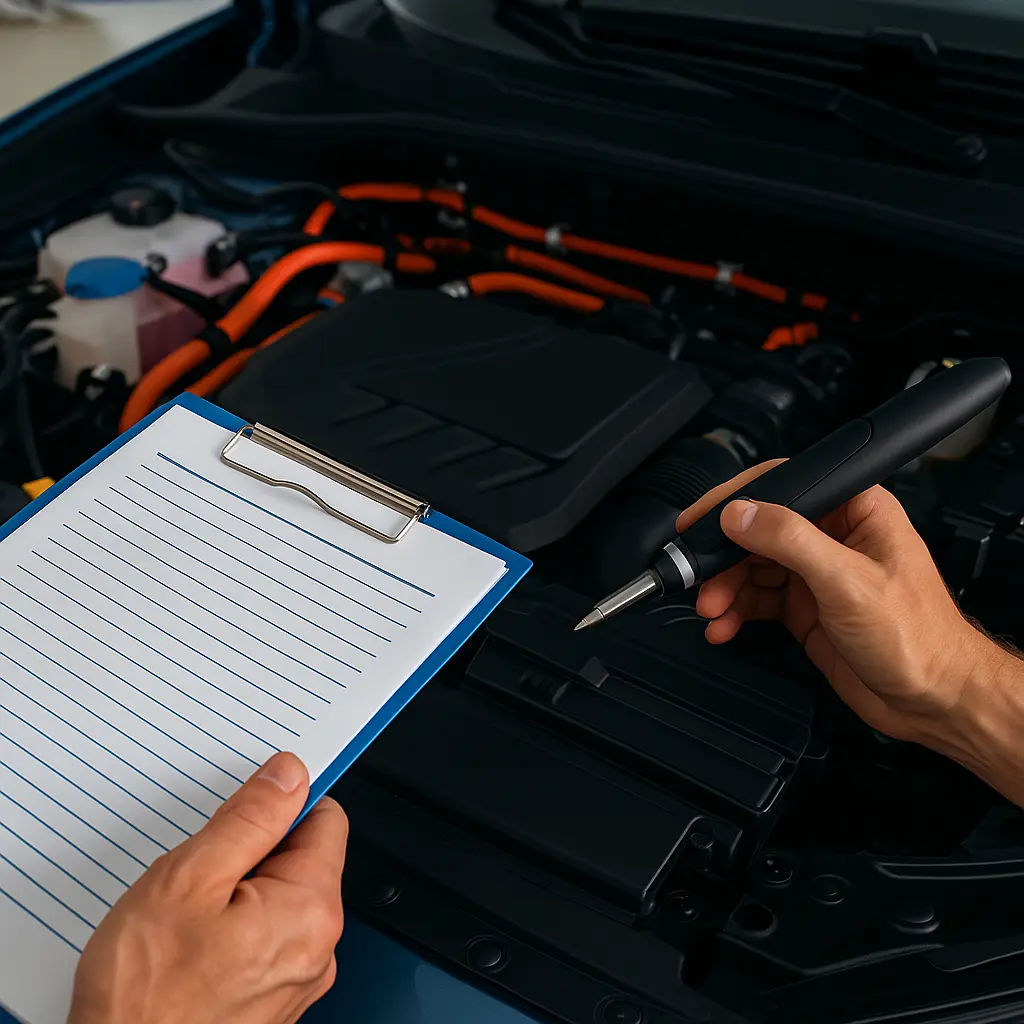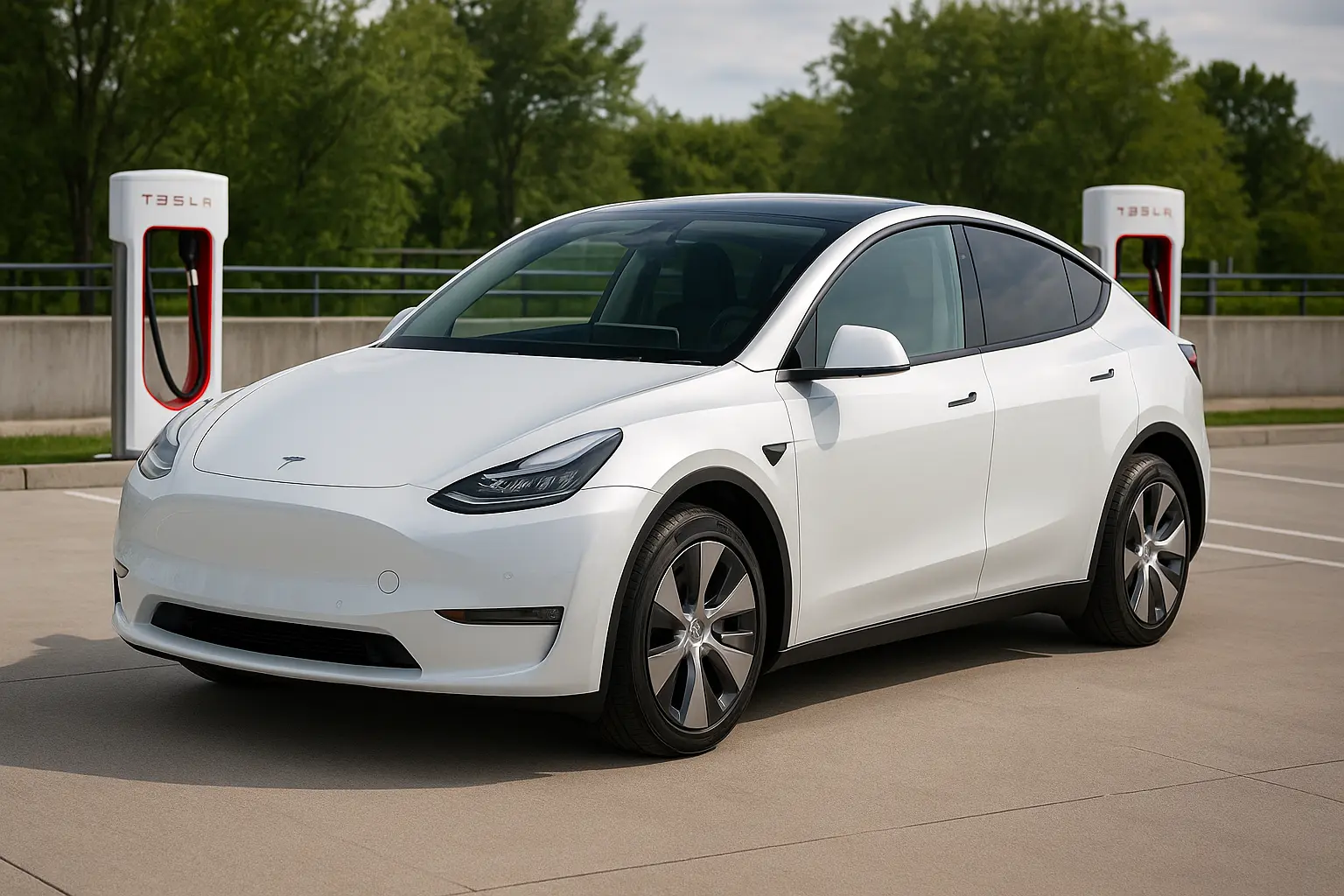🧰 Do You Still Need a Logbook Service in 2025? What’s Changed

Introduction: Logbook Services in the Modern Age
For decades, Australian car owners have relied on logbook servicing as a benchmark for vehicle care. Traditionally tied to the manufacturer’s recommended schedule, a logbook service is more than just an oil change—it's a systematic, recorded process ensuring your vehicle remains safe, efficient, and compliant with warranty conditions.
But as we speed into 2025, car technology, ownership models, and service industry practices have evolved. Many are now questioning:
- Do you still need a logbook service in 2025?
- Are dealership services worth the extra cost?
- Can local mechanics handle modern vehicles without voiding warranties?
- What’s changed in the rules, consumer rights, and expectations?
This blog dives deep into what Aussie drivers need to know in 2025 when it comes to logbook servicing and car maintenance.
📖 What Is a Logbook Service?
A logbook service is a maintenance service carried out in accordance with the vehicle manufacturer’s specifications. Your car’s “logbook” is essentially a guide, outlining:
- What maintenance tasks should be performed
- At what intervals (based on time or kilometers driven)
- Using what types of fluids and parts
It’s not just about ticking boxes—these services are designed to:
- Extend the lifespan of your car
- Maintain fuel efficiency
- Preserve warranty coverage
- Ensure safety and reliability
In 2025, with more hybrid, electric, and connected vehicles on the road, these scheduled services are more nuanced and technologically complex.
⚖️ What’s Changed in 2025?
1. Digital Logbooks & Smart Alerts
The traditional paper logbook is becoming obsolete. Many 2025 models now come with:
- Digital service records
- Automated reminders via infotainment systems
- App-based tracking with service scheduling
Manufacturers like Toyota, Hyundai, and Tesla offer fully integrated vehicle maintenance logs. This means forgetting your next service date is less likely—but it also means local mechanics must be equipped with proper diagnostic tools to update service records digitally.
2. Electric & Hybrid Vehicles Have Different Needs
In 2025, more than 20% of new vehicle sales in Australia are electric or hybrid. These vehicles don’t require many traditional services such as:
- Oil changes
- Spark plug replacements
- Exhaust system checks
However, they do require logbook-specific tasks like:
- Battery health checks
- High-voltage system inspections
- Regenerative braking diagnostics
- Firmware and software updates
Skipping these tasks can impact not just performance, but also manufacturer warranties and resale value.
3. ACCC & Warranty Law Clarifications
The Australian Competition and Consumer Commission (ACCC) reaffirmed in recent years that:
“You do not have to service your vehicle at the dealership to maintain your warranty.”
However, the service must be:
- Performed by a qualified mechanic
- Done according to the manufacturer’s specifications
- Recorded accurately
In 2025, more local workshops are certified to handle high-tech logbook services, but consumers still need to check whether:
- The mechanic uses genuine or equivalent-quality parts
- The digital logbook is correctly updated
- The workshop is accredited for EV or hybrid servicing
🛠️ Dealership vs Local Mechanics in 2025: The Breakdown
| Feature | Dealership | Local Mechanic |
|---|---|---|
| Cost | High | Moderate to Low |
| Warranty Safe? | Always | Only if guidelines are followed |
| EV/Hybrid Service? | Fully Equipped | Varies – check first |
| Genuine Parts? | Always | May use OEM equivalent |
| Personal Service | Less | Often better |
| Booking Times | Longer | More Flexible |
✅ Pros of Going to a Dealership
- Certified with latest brand tools
- Guaranteed compliance with logbook
- Fast recall checks or software updates
- Ideal for high-end or new models under full warranty
✅ Pros of Using a Local Mechanic
- Cheaper labour and parts
- Flexible appointments
- Great for older cars or out-of-warranty vehicles
- Better long-term customer relationships
🔧 What Does a Logbook Service Cover in 2025?
While the exact tasks depend on the make and model, most services include:
Basic Tasks (all vehicles):
- Engine oil & filter change
- Tyre rotation & tread check
- Brake fluid check
- Air filter replacement
- Lights, wipers, battery check
- Suspension inspection
- Coolant level and condition
EV-Specific Additions:
- Battery state of health (SOH) analysis
- Charging port inspection
- Firmware updates
- Brake system and inverter cooling check
Hybrid Additions:
- Engine + motor system coordination checks
- Regenerative braking functionality
- Battery voltage balancing
Smart Car Features:
- ADAS (Advanced Driver Assistance Systems) calibration
- Sensor diagnostics (lane keep, emergency braking)
- Infotainment updates
- Keyless entry + immobiliser checks
🧾 What Happens If You Skip Logbook Servicing?
Skipping scheduled servicing can lead to:
- Voided warranty
- Insurance complications (if maintenance neglect is found)
- Poor resale value
- Mechanical issues due to neglect
- Safety hazards (especially with braking, tyres, or suspension)
With digital tracking now common, skipping a service is also easier for insurers or dealerships to verify.
💡 Can You Do Your Own Logbook Service?
Short answer: No.
Even if you’re handy with cars, to maintain your warranty:
- The service must be done by a licensed workshop
- Documentation must be complete
- OEM or equivalent parts must be used
- Correct tools and diagnostic equipment must be used
However, you can still do basic tasks like:
- Checking tyre pressure
- Refilling washer fluid
- Replacing cabin filters
- Charging 12V battery
Just don’t count these toward official logbook intervals.
🏷️ Logbook Service Costs in 2025
Prices vary based on vehicle type, brand, and service interval. Here’s an average breakdown:
| Car Type | Average Cost per Service |
|---|---|
| Petrol Sedan | $220 – $400 |
| Small SUV | $300 – $500 |
| Hybrid Hatch | $250 – $550 |
| EV | $180 – $400 |
| Luxury SUV | $600 – $1,000 |
Tip: Many manufacturers still offer capped-price servicing for the first 3–5 years. It’s worth checking before buying a car.
🔍 Key Signs of a Trustworthy Local Mechanic
- A Grade workshop certification
- Specialisation in your vehicle type
- Transparent quotes with breakdown
- Use of diagnostic tools
- Willing to update digital logbooks
- Reviews and word-of-mouth credibility
If your car is under warranty, ask them for written confirmation that all procedures follow manufacturer specs.
📈 The Future of Servicing: What’s Coming Next?
1. Remote Diagnostics & Predictive Maintenance
In 2025, connected cars can:
- Alert you about worn brakes, battery health, or engine issues
- Connect directly with service centers to pre-order parts
- Send service data directly to your mechanic
Expect even predictive maintenance systems that use AI to suggest service before a problem occurs.
2. Over-the-Air (OTA) Software Updates
EVs and hybrids increasingly rely on software for performance, safety, and user interface. These can often be updated:
- Without visiting a workshop
- Overnight via Wi-Fi
- Automatically scheduled by your app
However, OTA updates do not replace mechanical checks—you still need to follow the service intervals.
3. Subscription-Based Servicing Models
Some OEMs (like Volvo, Tesla, and BMW) offer servicing bundled into monthly subscriptions, covering:
- Roadside assistance
- Scheduled logbook servicing
- Warranty extensions
- Tyre and brake pad replacement
These may suit urban drivers or fleet owners looking for simplified costs.
🧠 Final Thoughts: Should You Still Get a Logbook Service in 2025?
Absolutely. Whether you drive a petrol hatchback or an electric SUV, logbook servicing is your ticket to:
- A safer, better-performing car
- A maintained warranty
- Peace of mind at resale
- Lower long-term running costs
While the format and technology have changed, the importance of regular, structured servicing has not.
Whether you choose your dealership or a trusted local mechanic, sticking to your car’s service schedule is one of the smartest things you can do as a car owner in 2025.
If you need help choosing between local mechanics or authorised dealerships in your area, or have questions about logbook updates for hybrids and EVs—stay tuned to Carsoop.com.au for upcoming guides and tools tailored for Australian drivers.
Leave a comment
Your email address will not be published. Required fields are marked *




















